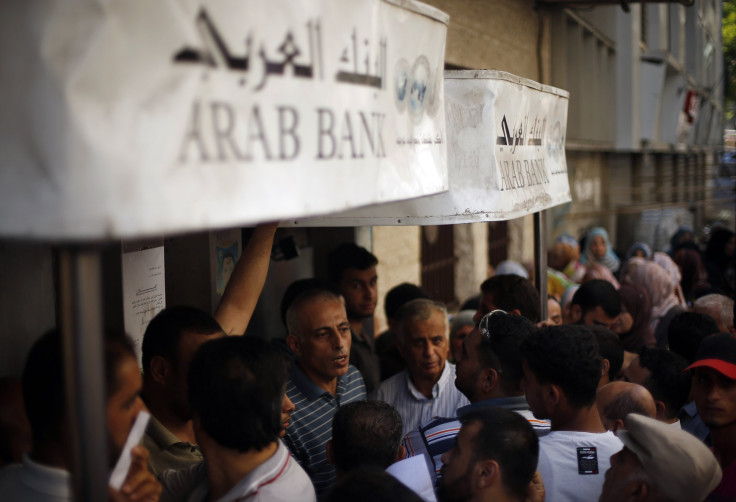Arab Bank Verdict Comes Amid Tougher Rules For Foreign Banks

For the first time, an international bank is being held responsible for supporting a terrorist group in a civil suit under the Anti-Terrorism Act. The guilty verdict for Arab Bank in a federal court in New York on Monday is a sign that authorities are increasingly cracking down on financial institutions that don’t know their clients well enough, but it could discourage banks from operating in some of the world's most vulnerable countries, say experts.
Arab Bank was found liable for knowingly providing financial services to members of Hamas that directly supported some two-dozen terrorist attacks in Israel more than a decade ago. The 84-year-old bank has more than 200 branches in 30 countries and manages $46 billion in assets.
“The outcome sends a serious message,” Dennis Lormel, former chief of the Financial Crimes and Terrorist Financing Operations Sections at the FBI, said to IBTimes. “Things are going to get a lot tougher.”
The bank has argued that it had no way of knowing where the funds were going, but the court ruling and a series of recent proposals from the U.S. Treasury indicate a growing burden on banking institutions to keep better track of their customers.
“Banks really need to understand who they’re doing business with,” said Lormel, who also works as an adviser to domestic and international banks, helping them understand and comply with increasingly tough regulations.
Earlier this summer, the Financial Crimes Enforcement Network (FinCEN,) a bureau of the U.S. Department of the Treasury, proposed stricter rules for banks, “addressing the need to collect beneficial owner information on the natural persons behind legal entities.”
“The success of such targeted financial measures depends, in large part, on the ability of financial institutions, law enforcement, and intelligence agencies to identify a target’s assets and accounts,”the proposal says. “Criminals often abuse legal entities to evade sanctions or other targeted financial measures designed to combat terrorism and other national security threats,” it says.
A major sticking point in the Arab Bank case was its unwillingness to turn over certain documents the court requested, citing citing privacy laws in the jurisdictions in which it operated.
“The bank produced very little from its own files,” Michael Elsner, one of the attorneys representing the plaintiffs. “We had to fly all over the world and collect documents.”
In response to Arab Bank’s refusal, the courts issued sanctions that prohibited its lawyers telling the jury why they failed to produce the documents, a move the bank said made the guilty verdict “inevitable.”
“While the verdict is important, the Arab Bank case is unique,” University of Notre Dame law professor Jimmy Gurule told IBTimes. “No pending [Anti-Terrorism Act] cases filed against other foreign banks involve such an egregious set of facts,” he said.
“In essence, Arab Bank entered into an agreement with the Saudi Committee, a principal fundraiser for Hamas, to administer the criminal plan for the benefit of Hamas,” said Gurule, who formerly worked at the U.S. Treasury Department, where he helped develop strategies to combat terrorist financing.
One of the most important pieces of evidence uncovered by prosecutors was a file from the Saudi Committee, a group for which the bank had processed transactions, that outlined in detail the name, date and location of various “martyrs” along with payment information for their family members. The bank was also named in a series of newspaper advertisements in Palestinian newspaper Al-Hayat, al-Jadida that instructed families of martyrs how to collect payments, according to court documents.
Following the ruling, Arab Bank released a statement arguing that many aspects of the trial, including the sanctions, were deeply flawed.
“Taken together, the Court’s rulings excluded nearly all evidence about banking and put Hamas on trial,” the bank said on Tuesday, adding that “Arab Bank believes it will ultimately prevail in this case.”
Shukry Bishara, who headed the bank’s operations in the Palestinian territories during the early 2000s argued during the trial that the term “martyr” didn’t necessarily represent a suicide bomber. But the jury found that the bank’s connection to the Saudi Committee was enough to make it liable in the end.
“I think what this case will really be a wake-up call to financial institutions that even if you comply with internal policies, it’s not a defense to knowingly doing business with terrorist groups,” Elsner said.
© Copyright IBTimes 2024. All rights reserved.






















